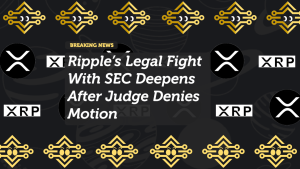There will always something from US
US State of Colorado Passes Crypto Exemptions Bill Into Law
US State of Colorado Passes Crypto Exemptions Bill Into Law
News
The governor of the State of Colorado, Jared S. Polis has signed the “Colorado Digital Token Act” into law, according to a document published on March 6.
The act — which was initially proposed in January and sponsored at the state Senate level by Republican Jack Tate and Democrat Steve Fenberg — provides limited exemptions for securities registration and traders, as well as salesperson licensing requirements for persons dealing in digital tokens.
The bill identifies a “digital token” as “a digital unit with specified characteristics, secured through a decentralized ledger or database, exchangeable for goods or services, and capable of being traded or transferred between persons without an intermediary or custodian of value.”
A previous bill that would govern blockchain tokens was voted down in the Colorado state Senate last May. The bill defined an “open blockchain token” and exempted certain open blockchain tokens from being defined as a security. Some members of the private sector were disappointed with the outcome, wherein Venture capitalist and blockchain investor David Gold said:
“This is an opportunity for Colorado to say, ‘Look, we’re going to provide an environment that provides clarity for the sector. That doesn’t mean charlatans can violate security laws.’ Those who oppose it simply don’t understand it.”
Earlier this month, Senator Jack Tate (R), together with representatives Jeni James Arndt (D) and Marc Catlin (R), filed a bill that tasks the Colorado Water Institute at Colorado State University with studying the potential implementation of blockchain to manage a database of water rights.
In February, Cointelegraph reported that two blockchain-related bills had been passed in the U.S. state of Wyoming. Both bills — one pertaining to the tokenization of assets and the other relating to depositories serving blockchain businesses — were introduced in January this year and will come into effect later in 2019.
This page is optimized by the [Pivot] typesetting engine, and the original text has not been changed.













